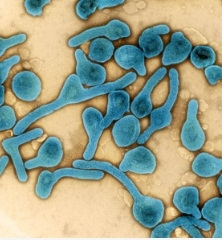South Sudan intensifies preventive measures after Marburg outbreak in Ethiopia

Juba, Nov 19 (IANS) South Sudan’s government said it has stepped up vigilance along its borders following an outbreak of the Marburg virus in neighbouring Ethiopia.
Minister of Health Sarah Cleto Rial said the government, together with the World Health Organization and other partners, has intensified surveillance, preparedness and response measures to prevent any importation and spread of the virus.
“The Ministry of Health reassures the public that no confirmed cases have been reported in South Sudan,” Cleto said on Monday evening during a press conference in Juba, the capital of South Sudan.
She urged citizens to remain calm and promptly report any suspected symptoms of the hemorrhagic disease to the nearest health facility.
This development came after the Ethiopian government declared a Marburg virus outbreak on November 14 in the southern town of Jinka, near the border with South Sudan.
The South Sudanese government has reactivated the Public Health Emergency Operation Centre (PHEOC) in the capital to strengthen surveillance, screening, risk assessment and identification of priority areas, while monitoring at national and state levels, Cleto said.
Mabior Kiir Kudior, chief of planning and information at the PHEOC, said a rapid response team has already been deployed to high-risk counties, such as Kapoeta East, Akobo, Pochala, and the Greater Pibor Administrative Area, Xinhua news agency reported.
“We have made swift decisions, including developing a 72-hour response plan. We have also developed the travel advisory to assure the public and the travelers on the precaution measures to be taken for our safety,” Kudior said.
Marburg virus disease is a severe disease with a fatality ratio of up to 88 per cent. This rate can be lower with good and early patient care.
Marburg virus disease was initially detected in 1967 after two simultaneous outbreaks in Marburg and Frankfurt in Germany, and in Belgrade, Serbia. The outbreak was associated with laboratory work using African green monkeys (Cercopithecus aethiops) imported from Uganda. Subsequently, outbreaks and sporadic cases have been reported in Angola, the Democratic Republic of the Congo, Equatorial Guinea, Ghana, Guinea, Kenya, Rwanda, South Africa (in a person with recent travel history to Zimbabwe), Tanzania and Uganda.
–IANS
int/jk/




